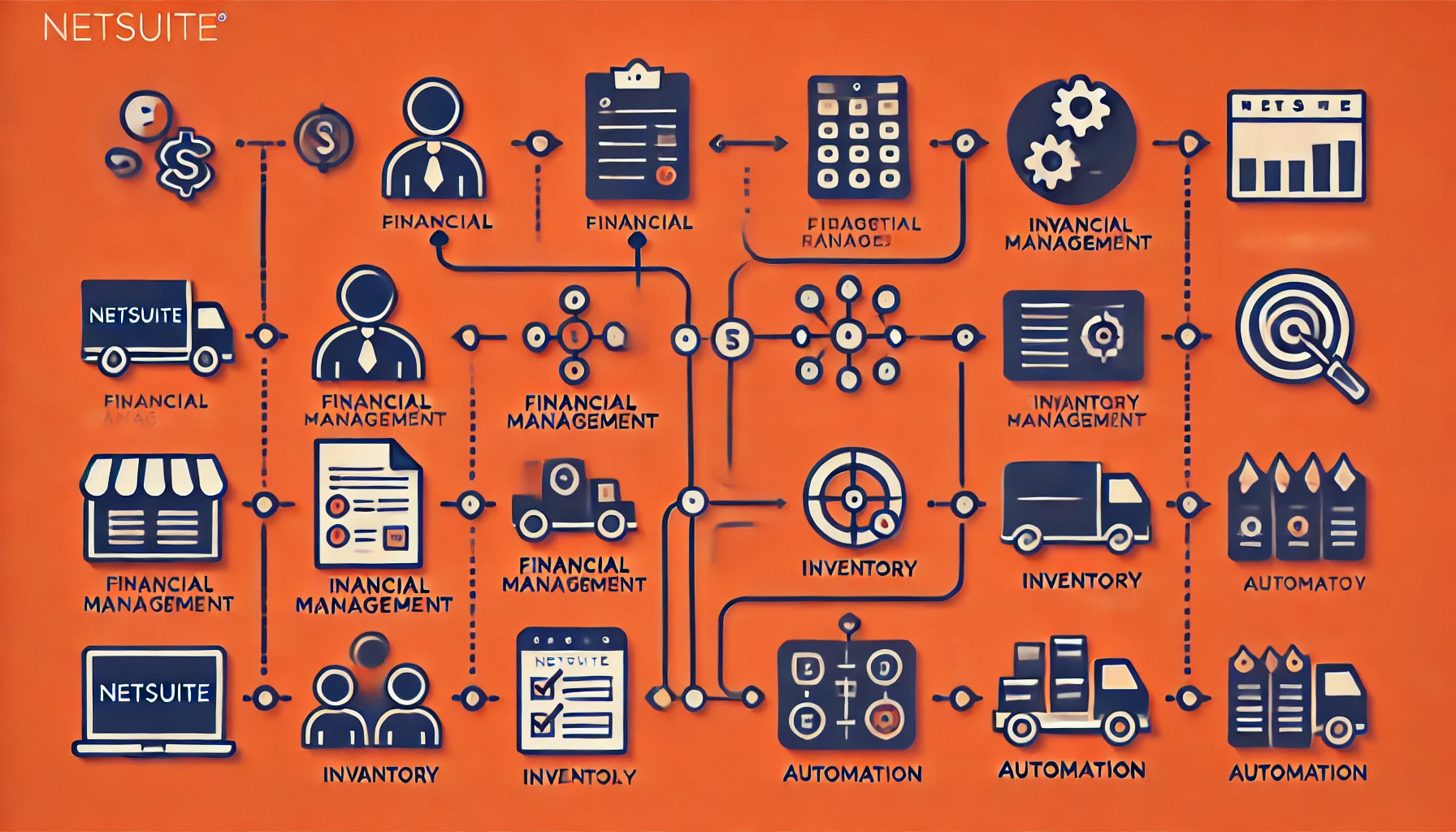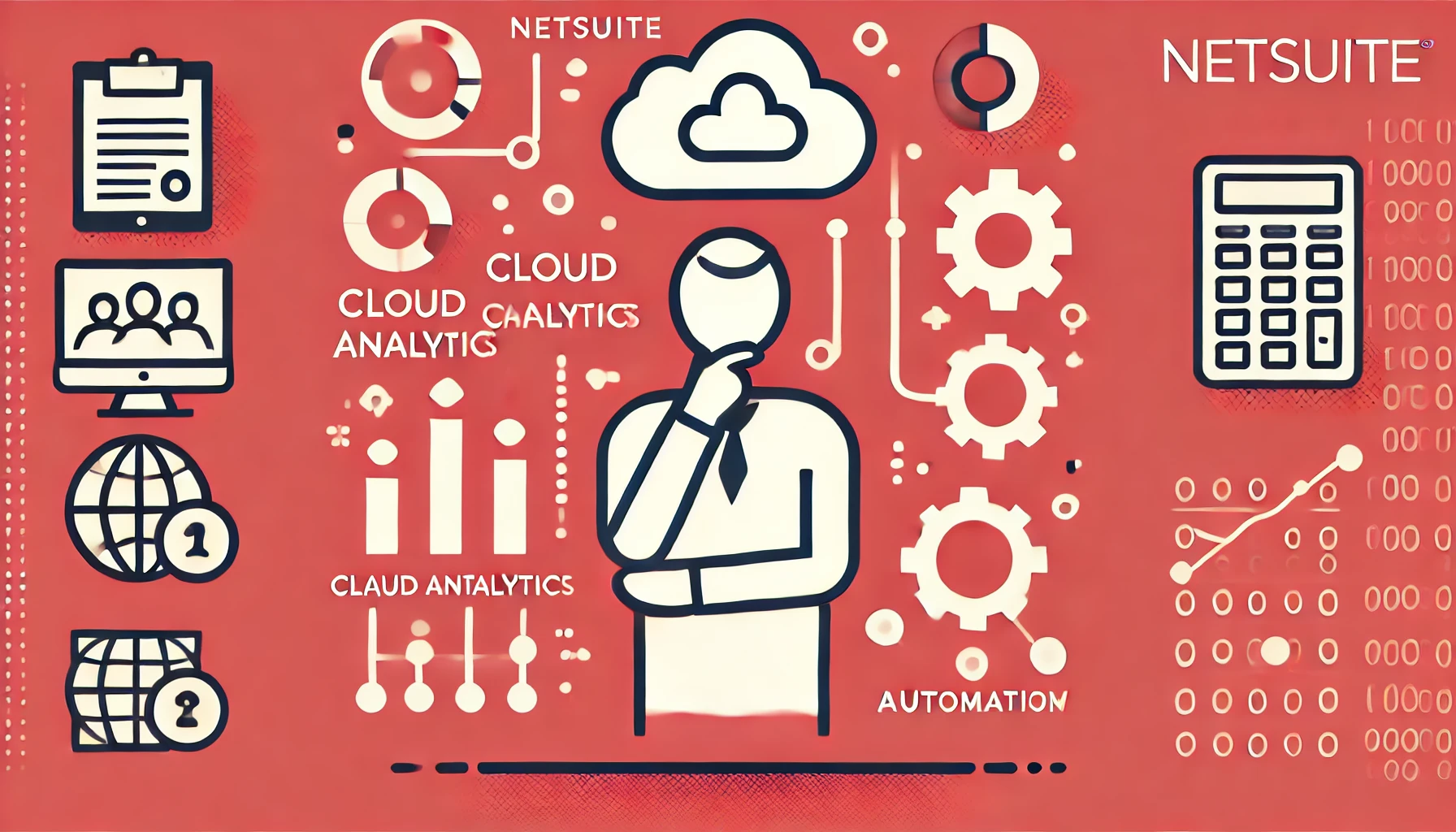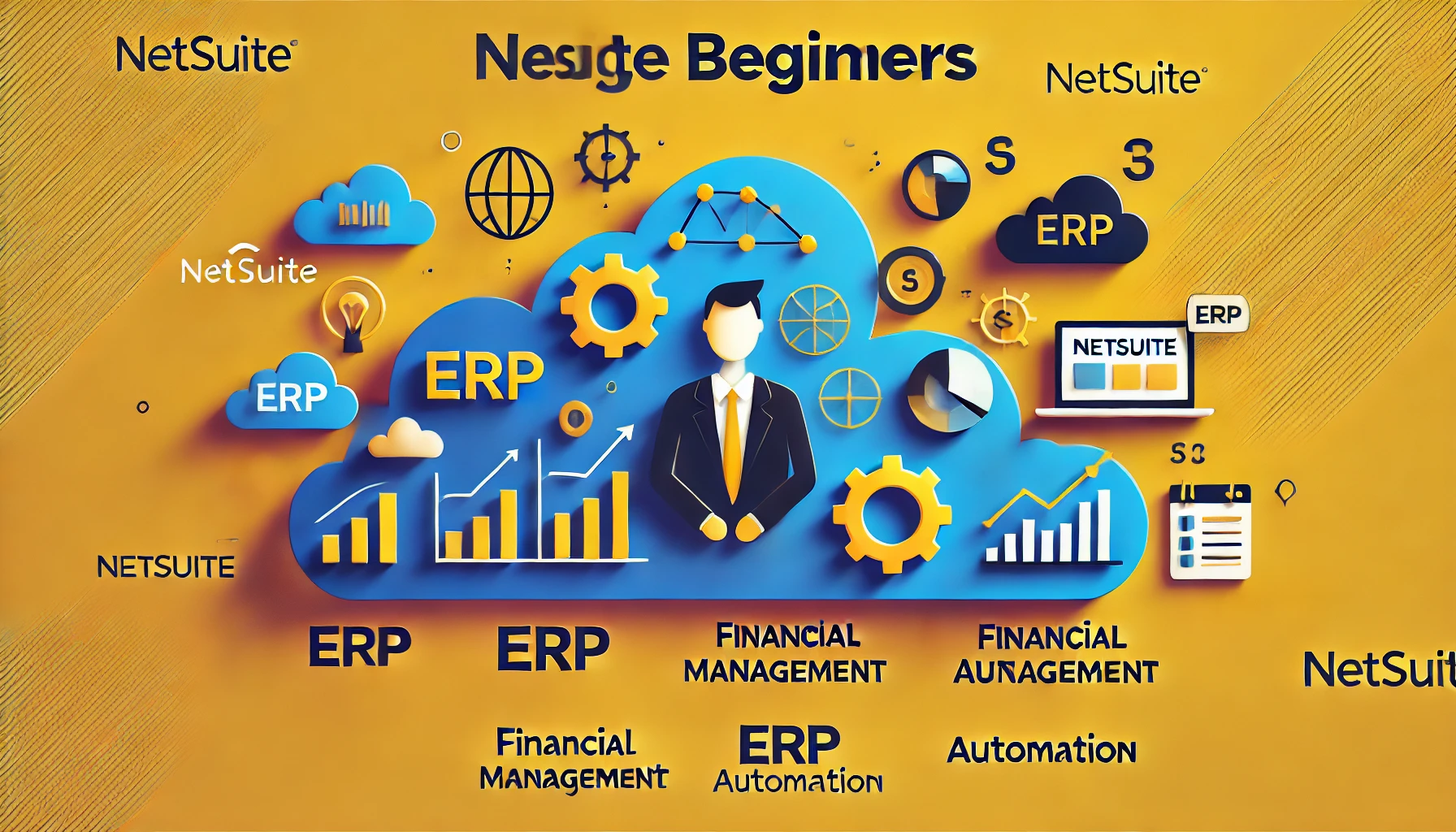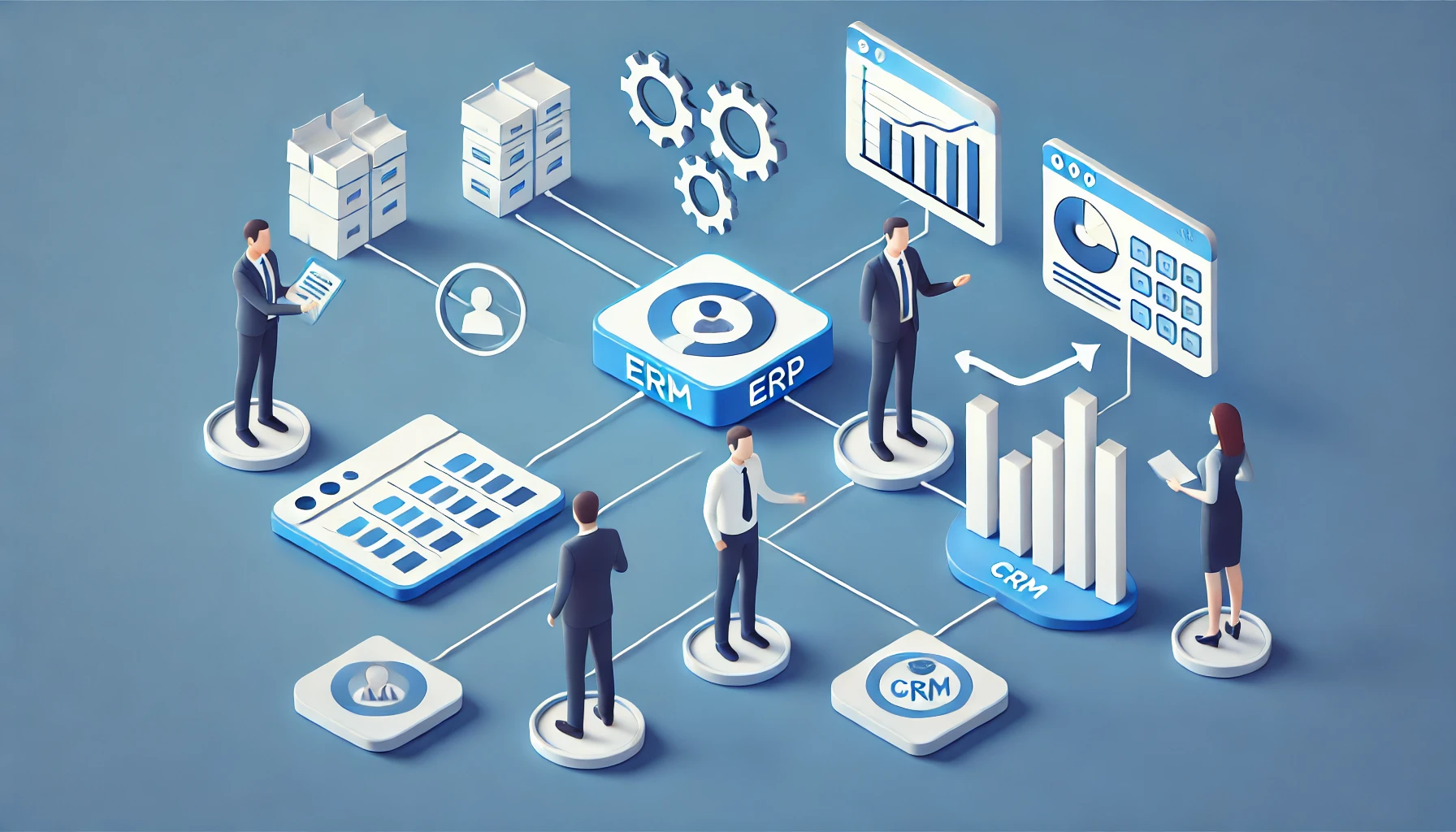NetSuite is one of the world’s leading cloud-based Enterprise Resource Planning (ERP) systems, offering businesses an all-in-one platform to manage finances, inventory, CRM, e-commerce, and more. If you’re new to NetSuite, you might be wondering how to get started and what features can help your business thrive.
This NetSuite beginner guide for 2025 is designed to give you a comprehensive introduction to the platform. Whether you’re a small business owner, an accountant, or an IT professional, this guide will walk you through the essential features, setup process, and best practices to maximize your NetSuite experience.
Table of Contents
ToggleWhat is NetSuite?
NetSuite is a cloud-based ERP software that integrates various business processes into a single system. It provides real-time visibility into financials, inventory, sales, and customer data, helping businesses improve efficiency and scalability.
Key Benefits of NetSuite
- Scalability – Suitable for businesses of all sizes, from startups to enterprises.
- Automation – Reduces manual work by automating financials, order processing, and inventory management.
- Customization – Adapts to different industries and business needs.
- Cloud-Based Access – Enables remote work with real-time data availability.

Getting Started with NetSuite
1. Setting Up Your NetSuite Account
If you’re a new user, you’ll need to set up your NetSuite account properly to start managing your business efficiently.
Steps to Set Up NetSuite:
- Log in to your NetSuite account via the NetSuite dashboard.
- Configure company settings, including currency, tax, and fiscal year settings.
- Set up user roles and permissions to control access levels for employees.
- Customize your dashboard widgets to display key performance metrics.
2. Understanding the NetSuite Dashboard
The NetSuite dashboard is your control center, giving you real-time insights into various aspects of your business.
Key Dashboard Features:
- Key Performance Indicators (KPIs) – Customizable widgets showing sales, revenue, and inventory.
- Saved Searches & Reports – Easily access real-time data and reports.
- Reminders & Notifications – Get alerts for pending approvals, invoices, or tasks.
Core Features of NetSuite
1. NetSuite Financial Management
NetSuite’s accounting and financial management tools help businesses automate and streamline processes.
Key Financial Features:
- General Ledger – Tracks all financial transactions in real time.
- Accounts Payable & Receivable – Manages invoices, payments, and vendor transactions.
- Revenue Recognition – Ensures compliance with accounting standards.
- Multi-Currency Support – Useful for businesses operating globally.
2. NetSuite Inventory & Supply Chain Management
Managing inventory efficiently is crucial for businesses selling products.
Inventory Features:
- Real-time inventory tracking to prevent stockouts.
- Automated order fulfillment for faster processing.
- Warehouse management tools to optimize storage and logistics.
3. NetSuite CRM (Customer Relationship Management)
NetSuite CRM helps businesses manage customer interactions and improve sales.
CRM Capabilities:
- Customer data management for personalized interactions.
- Sales pipeline tracking to monitor leads and opportunities.
- Marketing automation tools for email campaigns and promotions.
4. NetSuite E-commerce (SuiteCommerce)
For businesses selling online, NetSuite SuiteCommerce offers a seamless e-commerce platform.
SuiteCommerce Features:
- Website management with built-in templates.
- Integrated inventory management to sync online and offline sales.
- Automated order processing for faster deliveries.
How to Customize NetSuite for Your Business
1. Customizing NetSuite Dashboards
You can personalize your NetSuite dashboard to display the most relevant data for your business.
Steps to Customize Your Dashboard:
- Drag and drop widgets for quick access to reports and KPIs.
- Set up role-based dashboards for different team members.
- Use shortcuts and navigation menus for a smoother workflow.
2. Using NetSuite SuiteApps
SuiteApps are third-party applications that extend NetSuite’s functionality.
Popular SuiteApps Include:
- Expensify – Automates expense reporting.
- Avalara – Simplifies tax calculations.
- Celigo – Integrates NetSuite with other software.
3. Automating Business Processes
NetSuite offers workflows and automation tools to reduce manual tasks.
Examples of Automation:
- Automated invoicing to send bills to customers.
- Scheduled reports for financial tracking.
Approval workflows for expense management.

Best Practices for New NetSuite Users
To get the most out of NetSuite, follow these best practices:
Train Your Team Properly: Invest in NetSuite training for employees to ensure they understand how to use the platform effectively.
Leverage NetSuite SupportL: If you run into issues, use NetSuite Learning Cloud Support (LCS) or consult NetSuite partners for assistance.
Keep Your Data Clean: Ensure accurate data entry and remove duplicates to keep your system efficient.
Use NetSuite Reports & Analytics: Take advantage of real-time reporting to make data-driven decisions.
Regularly Update and Optimize: NetSuite releases updates periodically, so keep your system up to date to access new features.
Common NetSuite FAQs
1. Is NetSuite Hard to Learn?
NetSuite has a learning curve, but with proper training and resources, users can quickly become proficient.
2. How Much Does NetSuite Cost?
Pricing varies depending on the number of users and features. Typically, NetSuite costs between $99–$999 per user per month, plus licensing fees.
3. Can NetSuite Be Used for Small Businesses?
Yes! While NetSuite is commonly used by mid-sized and large enterprises, small businesses can benefit from its scalability and automation features.
4. Does NetSuite Work on Mobile?
Yes, NetSuite offers a mobile app that allows users to access dashboards, reports, and approvals on the go.
Conclusion
NetSuite is a powerful ERP system that can streamline business operations across finance, inventory, CRM, and e-commerce. This NetSuite beginner guide for 2025 covered essential features, setup steps, and best practices to help new users get started.
By taking advantage of automation, customization, and real-time analytics, businesses can maximize efficiency and make data-driven decisions. Whether you’re a small business or an enterprise, NetSuite is a game-changer for digital transformation.



